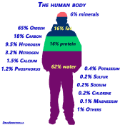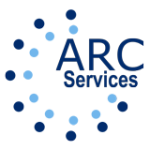How Does Addiction Start?
We are often confronted with mixed messages about the use of psychoactive substances (substances that affect the mind or mental processes). Drug use is often glamorized in the various forms of media, while opinions on usage vary from region to region.
These factors contribute in part to make drug use more easily accepted and considered normal. This perception may push the individual to undermine the effects of drugs and amplify his curiosity.
One aspect of drug addiction, which is important to understand, is that alcohol and other addictive drugs are basically painkillers that render the individual numb. It helps them to escape from problems and unpleasant circumstances temporarily. Yet, drug usage comes with its own set of consequences.
Resorting to Drugs – Escaping Reality
Once it becomes a habit to resort to drugs to escape reality, alcoholism or drug addiction is imminent and almost inevitable. Like most individuals in our society, the drug addict is basically good.
The problems that could lead to drug usage include difficulty “fitting in” as a child or during adolescence, anxiety due to peer pressure or work expectations, identity issues, injuries, or chronic pain.

Stages of
Addiction
Drug
Overdose

A Solution to a Problem
This problem is real and troublesome for the individual who is having difficulty coping with it. Everyone at some point in life has experienced this to a certain extent. The difference between a drug addict and a “non-addict”t is that the drug addict chose drugs to solve the problem instead of seeking a healthy and effective solution.
As soon as drugs or alcohol seem to solve his problem, the individual feels better and content. He’s given this false impression that he is now more capable of dealing with life. This is when drugs become valuable to him. Their characteristic painkilling effects become the solution to the discomfort that he feels. Such a release is the main reason for using drugs or drinking a second, third, or fourth time.

Alcohol
Overdose
Understanding
Cravings

Overwhelming Need – Obsessive or Necessary
Drug consumption eventually becomes obsessive and necessary for the individual. The individual wants the drug, needs the drug and is willing to go to great lengths to get it.
Now trapped, the drug addict does not immediately realize his situation or is blatantly denying it. Whatever problem he was initially trying to solve by using drugs fades from his memory.
Tolerance to Mind-Altering Substances & Addiction
At this point, all he can think about is getting and using drugs. He loses control over his usage and turns a blind eye to the grave consequences of his actions. Drugs have now become the most important thing in his life.
Ironically, the addict’s feeling of the “high” from alcohol or drugs gradually decreases as his body adapts to the presence of these foreign chemicals. He now needs to consume bigger dosages of drugs, not just to feel their effect but also to function. By doing so, he has crossed an invisible and intangible line that now makes him a fully-fledged person with an addiction.
There are signs that a person might be addicted. You can read about the symptoms of drug addiction here.

Alcohol and
Depression
Drug Induced Psychosis


Addiction Series
- Alcohol and Depression
- Alcohol, Dangers in Stopping
- Alcohol Overdose
- Addiction – Beginning
- Addiction Symptoms
- Addiction Consequences
- Drug-Induced Psychosis
- Drug Overdose
- How to quit crack cocaine?
- It’s Difficult to Quit Drinking
- Overlooking Addiction & Diagnosing Depression
- Stages of Addiction
- Quitting Weed
- The Functional “Addict” Defined
- Understanding Cravings
- What is Addiction?
- Alcohol and Depression
- Alcohol, Dangers in Stopping
- Alcohol Overdose
- Addiction – Beginning
- Addiction Symptoms
- Addiction Consequences
- Drug-Induced Psychosis
- Drug Overdose
- How to quit crack cocaine?
- It’s Difficult to Quit Drinking
- Overlooking Addiction & Diagnosing Depression
- Stages of Addiction
- Quitting Weed
- The Functional “Addict” Defined
- Understanding Cravings
- What is Addiction?
Find out more about us.

Marc J. Bernard
Author,
Substance Use Disorder & Recovery Professional,
Referral & Consultation Counsellor







